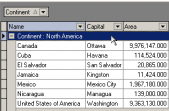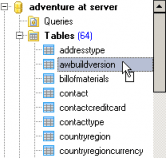MS SQL Maestro online Help
| Prev | Return to chapter overview | Next |
Create Conversation Wizard
The wizard guides you through the process of creating a new Service Broker conversation. In order to run the wizard you should either
| • | select the Object | Create Database Object... main menu item; |
| • | select the Conversations icon in the Create Database Object dialog |
or
| • | select the Conversations list or any object from that list in the explorer tree; |
| • | select the Create Conversation ... item from the popup menu |
or
| • | open the database in Database Editor and the Conversations tab there; |
| • | press the Insert key or select the Create New Conversation ... item from the popup menu (alternatively, you may use the corresponding link of the Navigation Bar). |
The basic principles of Create Object Wizards in MS SQL Maestro are explained in a separate topic. Below you will find a description of wizard steps that are unique for the current object.
Conversation options
Initiator service
Specifies the service that initiates the dialog. The name specified must be the name of a service in the current database. The queue specified for the initiator service receives messages returned by the target service and messages created by Service Broker for this conversation.
Target service
Specifies the target service with which to initiate the dialog. The target_service_name is of type nvarchar(256). Service Broker uses a byte-by-byte comparison to match the target_service_name string. In other words, the comparison is case-sensitive and does not take into account the current collation.
Contract
Specifies the contract that this conversation follows. The contract must exist in the current database. If the target service does not accept new conversations on the contract specified, Service Broker returns an error message on the conversation.
Related conversation
Specifies the existing conversation group that the new dialog is added to. When this clause is present, the new dialog belongs to the same conversation group as the dialog specified by related conversation. The conversation must be of a type implicitly convertible to type uniqueidentifier.
Related conversation group
Specifies the existing conversation group that the new dialog is added to. When this clause is present, the new dialog will be added to the conversation group specified by related conversation group.
Life time
Specifies the maximum amount of time the dialog will remain open. For the dialog to complete successfully, both endpoints must explicitly end the dialog before the lifetime expires. The lifetime value must be expressed in seconds. Lifetime is of type int.
Encryption
Specifies whether or not messages sent and received on this dialog must be encrypted when they are sent outside of a Microsoft SQL Server instance. A dialog that must be encrypted is a secured dialog. When unchecked and the certificates required to support encryption are not configured, Service Broker returns an error message on the conversation. If checked, encryption is used if a remote service binding is configured for the target service; otherwise messages are sent unencrypted.
Messages are the information exchanged between applications that use Service Broker.
Each message is part of a conversation. A message has a specific type, which is determined by the application that sends the message. Each message has a unique conversation identity, as well as a sequence number within the conversation. When receiving messages, Service Broker uses the conversation identity and the sequence number of the message to enforce message ordering.
The content of the message is determined by the application. When a message is received, Service Broker validates the content of the message to ensure that the content is valid for the message type. Regardless of the message type, SQL Server stores the content of the message as type varbinary(max). Therefore, a message can contain any data that can be converted to varbinary(max).
See also: Conversation Editor
| Prev | Return to chapter overview | Next |





 Download
Download Buy
Buy
